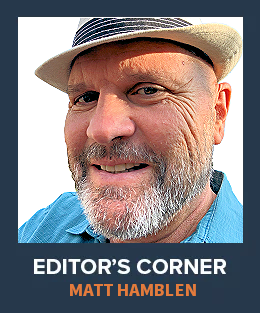The death of Mikhail Gorbachev, last leader of the Soviet Union, has prompted contrasting memories from various heads of state. For me, it’s something entirely different, going back 20 years ago to an odd interview I had with him at a tech conference in Orlando, Florida, where he was serving as a pitchman for a wireless startup.
President Biden and leaders of other democracies this week praised Gorbachev’s radical reforms—glasnost and perestroika—that led to the end of the Cold War. Some marked his remarkable ability to withstand a failed coup attempt by hardliners in 1991.
China’s state-run Global Times took a different tack, calling Gorbachev in historical reflection, “naïve and immature” who would be remembered as “a tragic figure who catered to the US and West without principle.”
Against the backdrop of the many things Gorbachev did through his 91 years, it is hard to imagine what his life must have been for more than three decades after he had served as head statesman under a communist regime, only to be thrust into a world of capitalism and, more significantly, technology startups. Almost none of the obituaries appearing this week upon his death mentioned his promotion of tech during that period from 1991 to 2010.
Due to some odd circumstances two decades back, Gorbachev delivered a keynote address in Orlando at the former Cellular Telecommunications & Internet Association (CTIA) Wireless 2002 conference that I was covering for Computerworld. In his remarks, he urged US companies to bring their IT outsourcing dollars to Russian programmers and to beef up Russia’s wireless infrastructure.
“Those who want Russia to continue to grow in IT should work with Russian companies, with our science centers and with our software companies,” he said through an interpreter. “Now is the time to go to Russia with investment.”
Remember: his keynote came fully a decade after the fall of the Soviet Union when Russia was still struggling to find an identity, much less attract foreign investment. It was also less than a year after the 9/11 attacks in 2001 in the US.
My recollection of his keynote was far less memorable, however, than meeting him 1-to-1 at the modest booth of ArrayComm, a wireless provider based in San Jose founded by industry pioneer Marty Cooper in 1992. (In a somewhat bizarre twist, ArrayComm is now based in China as Chengdu ArrayComm Wireless Technologies Co., Ltd.)
Gorbachev shook my hand and chatted in English with me for nearly 20 minutes. There was no body guard or any security presence. I asked standard questions about ArrayComm’s technology, but really wanted to know what it was like to be a statesman under communism turned wireless huckster.
It must have been a huge comedown for somebody of his stature, but he was genuine and warm and really seemed to believe in how wireless technology and related software would provide a future for Russia. He also was tired and rumpled, but so was I, and so were thousands of people attending the event.
My story from the time noted ArrayComm was offering final mile connections from smart wireless base stations to homes and businesses to provide throughput up to 1 Mbps. Today, fixed wireless broadband from various providers is more than 11 Mbps in many locations, with 5G offering 100-plus Mbps, on average. In 2002, there were just 8 million cell phone users in Russia, a number that grew to 97 million by 2021 out of a nation of 146 million people.
I recall asking Gorbachev, the powerful former statesman and confidante of Ronald Reagan and Margaret Thatcher, how experienced he was in using wireless technology. He smiled sheepishly. He used a cell phone, he responded, but didn’t have much time to use his home computer. His granddaughter, he said, was skilled at the computer and “could be a hacker” someday. (Kind of an intriguing comment, given how US cybersecurity officials now see Russia and China as existential threats.)
When I left him, I realized how it would be hard to avoid reading too much into my brief encounter with a person who literally changed the world in a major way. It is ironic how he was willing to work diligently to promote wireless tech and the High Technology Foundation/Gorbachev Project in Moscow. Even now, I get emails from Moscow government officials urging me to cover that city’s advances in smart city technology. One official told me years ago he was eager to show off superior Moscow tech as compared to tech in the rest of Russia.

Ironic also, how Russia is now leading a major war in Ukraine led by President Vladimir Putin. With the war’s outbreak half a year ago, major tech companies like Intel that had set up research operations in Russia prior to 2002, have suspended business operations there. AMD and Nvidia halted sales there as well.
What a difference 20 years makes. Tech, and possibly capitalism more broadly, will likely outlast many government regimes, as Gorbachev seemed to understand.
